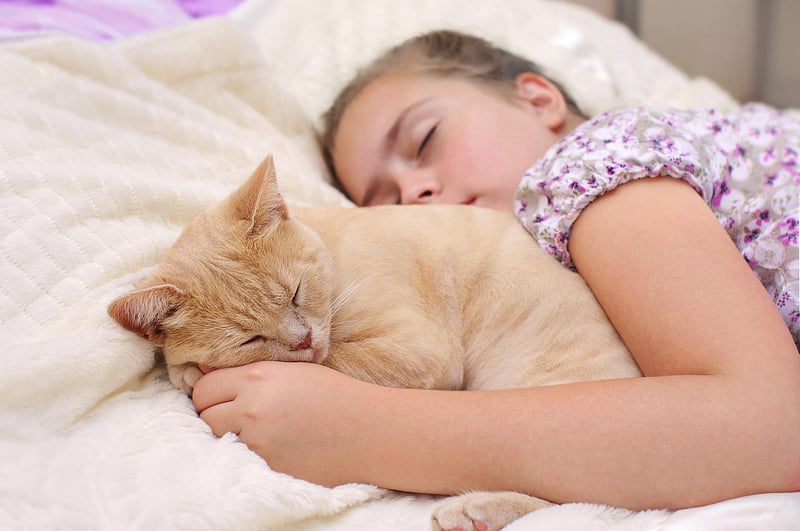Get Healthy!

- Cara Murez
- Posted October 27, 2022
Stress-Relief Programs Often Rely on Dogs. What About Cats?
Universities sometimes offer "Pet Your Stress Away" events offering a chance to relax while gently patting the head and stroking the back of a calm dog.
But some people are more interested in interacting with cats than dogs, according to a new study that linked preference to personality type.
"Our study shows that we may be able to reach a larger audience by offering interventions that include dogs and cats," said co-author Patricia Pendry, a professor of human development at Washington State University.
Folks with strong and highly reactive emotions would benefit from having cats on campus, the study showed.
"Emotionality is a pretty stable trait; it doesn't fluctuate and is a quite consistent feature of our personalities," Pendry said in a university news release.
"We found that people on the higher end of that scale were significantly more interested in interacting with cats on campus," she noted. "Given that prior research has shown that such individuals may be more open to forming strong attachments to animals, it makes sense they would want cats to be included in these programs."
For the study, the researchers surveyed more than 1,400 students and staff at more than 20 universities.
They found that the link between personality and openness to interacting with cats mattered even after accounting for openness to dog visits, owning a cat and identifying as female.
Negative influences included having a cat allergy or cat phobia.
"Anecdotally, we've always been told that cat people are different from dog people, and that most students are not interested in interacting with cats," Pendry said. "Our results revealed that students are interested in interacting with cats and that this interest may be driven by personality traits."
There's a practical reason many of these stress-busting events are dog-focused, Pendry said. That's because many canine therapy animals available are dogs. It's also a common view that cats may be unsuitable for therapy, she added.
"There's a perception that dogs exist to please people," Pendry said, classifying herself as both a dog and a cat person. "While I may describe cats as 'discerning,' they are often perceived as unpredictable, aloof, or finicky -- traits that can be difficult for some to be around."
In past studies where results weren't divided by different animal species, Pendry said it was easy to tell cat people from dog people.
"Some people came in and made an immediate beeline for cats and others for dogs," she said. "I was pleasantly surprised by how many people were interested in interacting with cats, which made me interested in learning more about why they made those choices."
The researchers, who included lead author Joni Delanoeije from the Belgian university KU Leuven, found university staffers were also open to animal interactions.
"We think of college student populations as being unique, and in several ways they are," Delanoeije said. "But when we looked at university employees, the results were very similar: Personality mattered more than being a student or employee. That shows there would be interest in having animal interventions in non-university settings and other workplaces."
About 85% of these events now include only dogs. Adding cats to the events may boost both participation and benefit, Pendry said.
"People who are on the higher end of the emotionality trait may be more likely to participate and benefit from these interactions," she said. "We're looking for ways to help more people reduce their stress levels. Adding cats may be another way to reach a broader audience."
The findings were recently published in the journal Anthrozoös.
More information
The American Heart Association has more on how pets help with stress relief.
SOURCE: Washington State University, news release, Oct. 25, 2022

